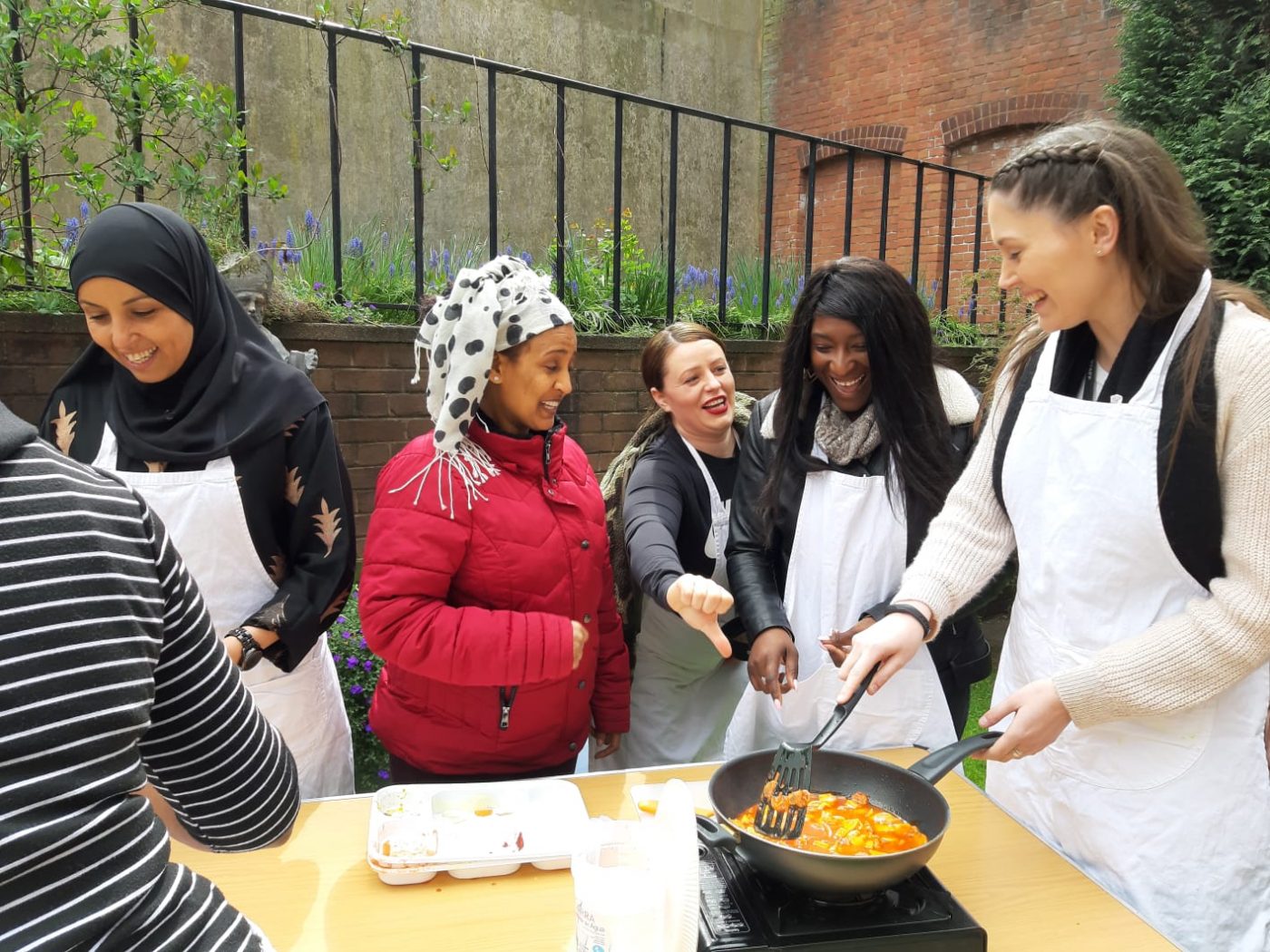
James: How appropriate that we are co-writing this article as an encounter!
Steph: Yes, very much so, given that collaboration on lots of different levels has been such a central element of the whole of this process: us, working together; collaboration between the Columbans and the different projects you have worked with and all based around the idea of creating encounters to bring people together.
Over the last 3 years we’ve facilitated so many learning encounters, including conversations, retreats, teacher training days, online meetings and even cooking sessions, with such encouraging results. Young people and Catholic educators from at least 10 schools have had significant encounters with asylum seekers and refugees. Why do you think people have been so open to learning in this way?
I think there are a few factors. Partly it’s about building positive relationships with schools that have meant they’ve been open to the idea, partly about creating opportunities to engage in a way that is something so different to what is normally offered. But I would say perhaps the most important thing that has enabled it to grow is how positive the feedback has been from those who have taken part … word has spread, often from one school to another, or staff who have had a positive experience want to share that with their young people.
I’d agree with all that, and add that for many of our educators it has been a truly eye-opening and privileged experience. They’ve been moved, emotional, angry. But at the same time, they’ve laughed and enjoyed meeting new people, not just a labelled “refugee” or “asylum seeker”. There have been many conversations about British weather, food, family, politics – time spent noticing what we have in common rather than what separates us. How do you feel taking part in these encounters has impacted your students and friends?
When we first started exploring these ideas, I asked myself lots of questions about this, particularly around how we made sure we weren’t exploiting those with lived experience of the asylum process whatever the benefit might be for others. Over time, I have become increasingly sure this is a mutually beneficial process, that my asylum-seeking and refugee friends who take part also gain a lot from being involved. At the most basic level, they always appreciate the opportunities for more English practice with different native speakers with different voices, but I think it goes much deeper than that. For some, they really understand the value of meeting with others from the host communities here: helping to challenge some of the perceptions they know exist, and encouraging people to understand their experiences and their humanity. These are often people who have very few spaces where their stories, be that the “refugee story” or other stories about their lives, are heard and believed: I have been reminded again and again of how empowering it can be for individuals to know they are really being heard.
And story is such a powerful tool. I think people sometimes struggle to relate to statistics and metanarratives – by meeting individuals and hearing something of their lives there is a real opportunity for a moment of empathetic growth, hopefully leading to a perspective shift.
Absolutely. That personal encounter is so important, and has great value in itself, but I think the programme surrounding it matters too. The young people and educators we have worked with have definitely been able to engage more fully because of the input and contextualisation beforehand. I also think we have been able to help people to understand that these individual encounters are exactly that: to understand that while some of their experiences might be ‘representative’ in some ways of the ‘refugee experience’ actually, every story is unique and different.
Preparation beforehand and debrief/follow up afterwards! As our programmes have evolved we’ve placed more and more emphasis on reflection – from taking the headteachers into the cathedral for lectio divina on the Holy Family’s flight into Egypt to the ‘homework’ set after visits and the follow up sessions back in school. Do you remember some of the reflections educators have shared?
Some of the reflections have been amazing … Where we had perhaps expected a few simple sentences we received reflections in the form of poetry, art, photo diaries. One member of school staff even wrote their own song (words and music) and another submitted a video of an interpretive dance! Knowing how busy school staff are, the time and effort many have put into reflecting on their experiences are an indication of the impact it has obviously had. What would you say have been the key things your participants have gained through these experiences?
So many! Educators have valued having first-hand experience to share with young people – and with their friends and family. It has been amazing to be part of something that so clearly challenges the wrong preconceptions and lack of knowledge found even amongst our participants. In addition, the programmes have had a definite impact on faith formation. Headteachers have told me that taking part has massively improved the engagement of staff with the ‘Catholic life’ of their schools. Many people have been inspired by your faith and commitment, the faith motivation of St Chad’s Sanctuary and the faith of the refugees. Finally, I think every school has taken action in response – donating, campaigning, informing others – what a privilege it is to plant seeds and see them grow. Many thanks for your ongoing collaboration with the Columbans!
Thanks to you too … And I definitely hope it will be ongoing! What we have done so far has been amazing, but I am constantly reminded that there is still so much more to do. I hope we will be able to continue working together to reach more educators and young people offering them these privileged encounters; and to offer more asylum seekers and refugees the spaces to have their stories heard.
